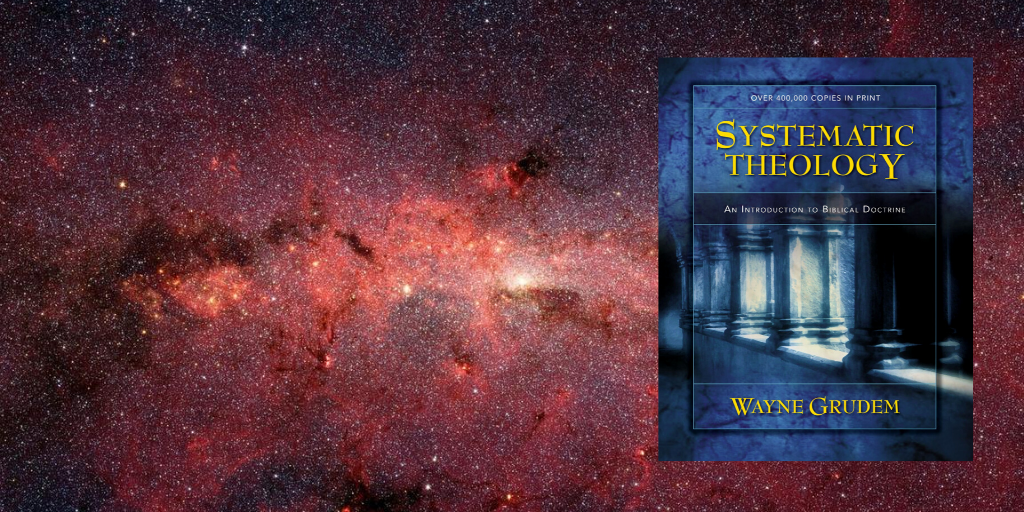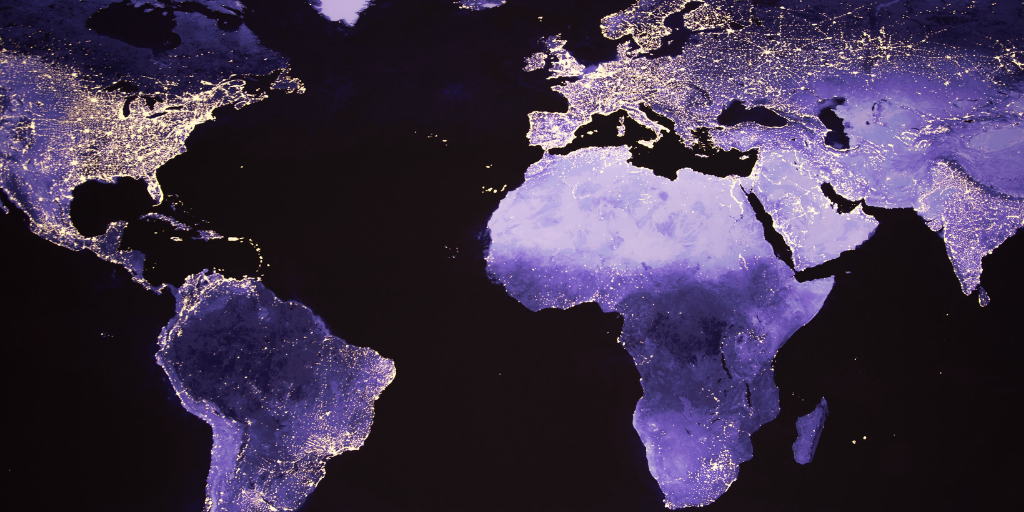Reading Systematic Theology with Wayne Grudem – Miracles: What are miracles? Can they happen today?
This post is part of a 50+ post series from the classic work by Wayne Grudem (PhD, Cambridge), Systematic Theology: An Introduction to Biblical Doctrine. The aim of each post is to provide an overview of each chapter in the book and related resources for each topic.
Synopsis of Chapter
In this chapter on Systematic Theology, Wayne Grudem reviews an important chapter related to God’s activity in the world: miracles. Although there are competing definitions in theology, Grudem defines miracle as: “a less common kind of God’s activity in which he arouses people’s awe and wonder and bears witness to himself.”
There were several areas Grudem surveyed in his discussion on miracles. He affirmed the fact of miracles for the New Covenant age after Jesus. He also explored the purposes of miracles. In light of the reason God gave us miracles, he discussed the controversy between ‘cessationists’ and ‘continuationists’ – or those who believe miracles continue today and those who don’t. He discussed the reality of false miracles and whether a Christian can expect to see miracles today.
Miracles As A Way God Works
Miracles can be difficult to define. In the chapter on God’s Providence, we learned that God is always at work in the world. So it wouldn’t make sense to define a ‘miracle’ as God working in the world. But it does make sense to say that God sometimes performs special, less common works to arouse people wonder and bear witness to himself. That is a miracle.
There are several biblical events that we can identify as miracles including…
- Moses turning his staff into a snake and back again (Exodus 4:2-5)
- Elijah calling down fire from heaven (1 Kings 18:17-40)
- Jesus healing people (Luke 4:36-41)
- Jesus cleansing lepers and casting out demons (Matthew 11:4-5)
- Unusual answers to prayer (1 Kings 18:24, Acts 12:5-17)
In addition to the fact of miracles, miracles also seem to be a characteristic of the New Covenant Age. There were miracles in the Old Testament, especially at certain times as with Moses and Elijah, but miracles began to increase when Christ arrived on the scene.
Nicodemus, the teacher in Israel, acknowledged that no one could do the miracles Jesus did unless God was with him (John 3:2). And Jesus performed miracles as part of the new kingdom he started. The early church also saw many miracles especially by the Apostles and those who preached. The book of Acts is filled with examples of miracles attending the preaching of the gospel (Acts 2:43, 3:6-10, 4:30, etc.). Beyond Acts, the church of Galatia saw miracles (Galatians 3:5) and Paul acknowledged the gift of “miracles” by the Holy Spirit (1 Corinthians 12:28). The New Testament church was a church well acquainted with miracles.
The Purposes of Miracles
There seem to be several purposes behind miracles. For one, miracles authenticate the message of the gospel. When Jesus spoke to the Samaritan woman, she affirmed that Jesus was someone with prophetic abilities and could be the Messiah (John 4:29). In the Book of Acts, people turned to the Lord after seeing signs and healings (Acts 8:6-8, 9:35). Jesus message or the early disciples’ message were authenticated through miracles.
Miracles also show what kind of kingdom Christ was bringing. It was one where demons would not control people (Matthew 12:28), where diseases would be cured, and where the Kingdom of God would be preached (Luke 9:1-2). In addition, miracles helped those who were in need and wanted healing (Matthew 20:30,34). But perhaps the most important purpose of miracles was to bring glory to God: Matthew declared, “When the crowds saw it, they were afraid, and they glorified God, who had given such authority to men.” (Matthew 9:8) God did things through miracles.
Were Miracles Just For The New Testament Age?
Those who believe in the Bible do not doubt the existence of miracles in the New Testament. However, many doubt whether miracles continued after the apostles. There are several arguments they use to say that the age of miracles ceased after the death of the last apostle.
They suggest that miracles were a ‘sign’ of an apostle from 2 Corinthians 12:12. And if a sign of an apostle was miracles and we have no more apostles, it stands to reason we no longer have miracles. This argument is weak since the immediate context of this passage is where Paul contrasts ‘false apostles’ from ‘true apostles’ – namely himself. He is not saying that non-Apostles don’t perform miracles, but that ‘false apostles’ don’t.
Others attempt to redefine miracles in a very restrictive sense so that it would be very difficult to see a miracle now. But if we use a more general definition, as was offered above, it is possible to see miracles at work even now through healings at least. In addition, if we are to take our cue from the New Testament, it’s very difficult to see where the Apostles foresee a time when miracles would stop.
False Miracles
Just as there are real miracles, there are also false miracles. False miracles have the appearance of actual miracles, but God does not do them nor do they bring him glory. On the contrary, false miracles are empowered by evil spirits. There are several examples of false miracles in the Bible.
- Pharaoh’s magicians were able to work false miracles. (Exodus 7:11, 8:7)
- Simon the sorcerer amazed people with his magical powers. (Acts 8:9-11)
- A soothsaying, slave girl lost her prophetic powers when a demon was cast out of her (Acts 16:16)
- The ‘man of sin’ (Antichrist) will have the power to deceive with false miracles (2 Thessalonians 2:9-10)
- The second beast of Revelation will deceive those who dwell on the earth (Revelation 13:11-14)
Despite the power to work false miracles, demonic powers are not greater than God. The Apostle John instructed his followers “Little children, you are from God and have overcome them, for he who is in you is greater than he who is in the world.” (1 John 4:4). We also see God’s greater power when Moses’ miracles were greater than the Egyptians’ Satan-inspired miracles (Exodus 8:19). And when Philip’s real miracles were greater than Simon the Sorcerer’s false miracles. In sum, God’s power is much greater than Satan’s.
Conclusion: Miracles Today?
So are miracles for today? Opinion is divided in the Evangelical world whether miracles continue in the 21st century, especially the more sensational types of miracles, ex. healing blind people, walking on water, or raising the dead. In most of our church experience, we don’t see this kind of thing happening every week.
And yet, we want to make sure our theology is built on the Scripture. In Scripture we see the Apostles praying for miracles (Acts 4:29-30) and expecting miracles (2 Corinthians 12:12). There does not seem to be any anticipation in Scripture for a complete cessation of miracles after the age of the Apostles. For that reason, it seems reasonable that miracles would continue in some measure. The reason is the same that people saw miracles in biblical times: to arouse people’s awe and wonder and bears witness to God.
“Who is like you, O Lord, among the gods? Who is like you, majestic in holiness, awesome in glorious deeds, doing wonders?” (Exodus 15:11)
Special Terms
- cessationist
- mighty work
- miracle
- natural law
- sign
- “signs of a true apostle:
- wonder
Resources: Wayne Grudem
- Wayne Grudem: Book: Systematic Theology: An Introduction to Biblical Doctrine
- Wayne Grudem: 148 Lectures on Systematic Theology at Scottsdale Bible Church
Related Resources
- OpenBible.info: Verses on Miracles
- ChristianAnswers.net: What Are Miracles & 126+ Miracles in the Bible
- Mark Pickering (UK): Can We Believe the Bible’s Miracles?
- John Piper: Why Do We See So Few Miracles Today?








